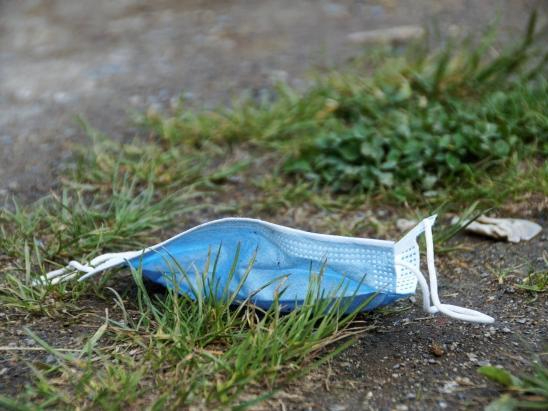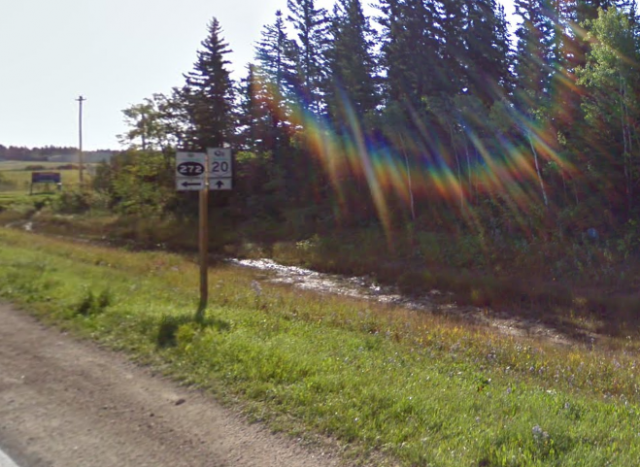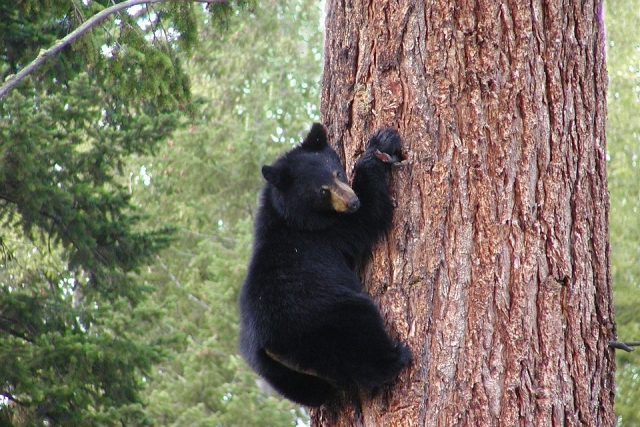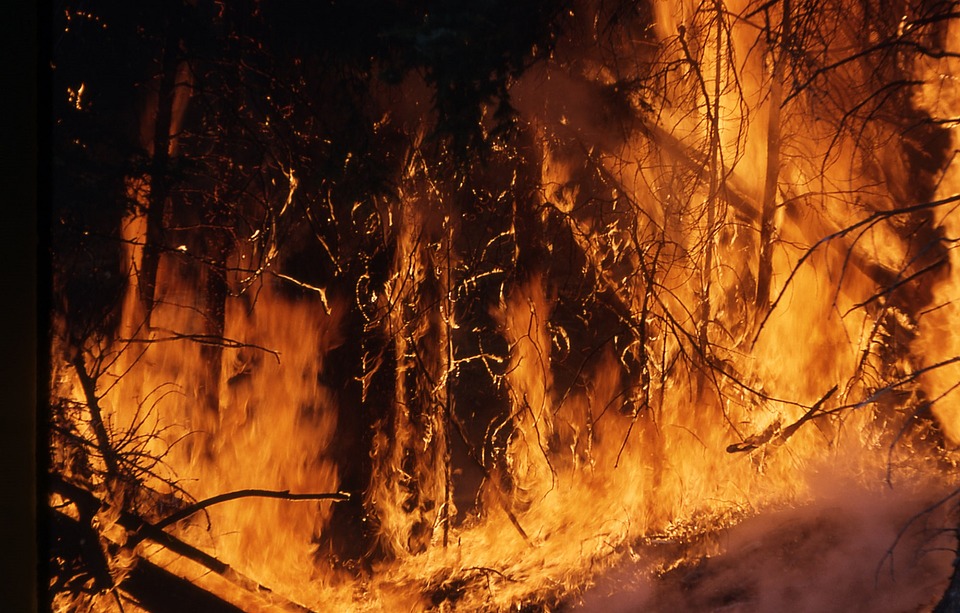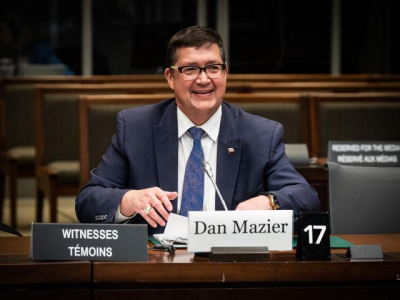 NewsNow
NewsNow
Four separate fires in eastern Manitoba have merged, becoming one of the largest fires on record.
This comes after three fires near Berens River combined to form a single fire yesterday.
The fire, which is near Bloodvein First Nation, is nearly 80 thousand hectares.
As of today, there are 140 active fires in the province. The average for this time of year is 333.
- Details
- Contributed by Trillian Reynoldson
The province’s vaccine implementation task force plans to put less focus on supersites, and more on pop-up clinics and other forms of outreach.
The task force’s operations and logistics lead, Johanu Botha says the province has enough doses to vaccinate everyone who wants a shot.
“We’re continuing our shift from the focus on volume to access and accessibility. Part of that shift will involve adjusting the days and hours of operation in supersites across the province.”
This shift will result in changes for staff including an adjustment in hours for some. Staff have been notified and Shared Health is working with them in this transition. There is no reduction in positions.
The province is working with regional health authorities and Indigenous partners to ensure vaccines are available to individuals who have been evacuated due to wildfires and wish to get the vaccine.
Currently, 79.1 percent of Manitobans have their first dose, and 67.8 percent have their second.
The next goal on the 4-3-2-One Great Summer reopening path is for 80 percent of Manitobans to have one dose and 75 percent to have two.
- Details
- Contributed by Trillian Reynoldson
The federal and provincial governments are collaborating with the city of Brandon to develop a 48-unit affordable housing complex.
The complex will include 42 two-bedroom units and six three-bedroom units. In addition to those units, there will be eight rooms on the main floor accessible for people with disabilities.
Adam Vaughan, Minister of Families, Children and Social Development, says every Canadian deserves a safe and affordable place to call home.
“It is with great pleasure that our government, through the National Housing Strategy, is supporting initiatives like this affordable housing project in Brandon. Our government is working collaboratively with the government of Manitoba to build strong communities where Canadian families can prosper and thrive, now and for the future.”
Since 2016, the Manitoba government has supported 743 new affordable and social housing rental units. The province says they will continue to protect and support vulnerable Manitobans through the development of affordable housing.
This development will be a part of the Government of Canadas National Housing Strategy, which is a 10-year, $70+ billion program to give more Canadians a place to call home.
Construction on this project is expected to begin in the spring of 2022.
- Details
- Contributed by Noah Fuchs
The Manitoba and Federal Governments are investing nearly $77 million into 17 projects to improve municipal transportation infrastructure in rural parts of Manitoba.
One of the places receiving funding from the governments is Gilbert Plains to help out in building flood prevention infrastructure that will ensure that the community remains safe and healthy during major flooding events and it will help them adapt to the effects of climate change.
As public works manager for Gilbert Plains, Charles Jeffers, explains, they were waiting for this day for a while:
“For about four years now, we’ve been trying to get funding for this particular project. We have done some, in conjunction with Inter-Mountain Watershed District already in the municipality and in neighbouring municipalities where we put money into it, just no grant money. It’s nice to see grant money finally come in so we can do some work.”
Another place that received funding was the Rural Municipality of Russell-Binscarth to replace or resurface their runways and aprons at their airport.
As the Mayor of the RM of Russell-Binscarth, Cheryl Kingdon-Chartier, says, this announcement is huge for the airport and the RM:
“We were thrilled, - you know small municipalities, the airports are vital so this news is just, it’s excellent.”
The Government of Canada is investing over $48.9 million in these 17 projects and the government of Manitoba is contributing more than $27.7 million.
- Details
A man is facing charges after RCMP received a report that he had threatened a woman at a residence at Ebb and Flow First Nation.
The woman was able to remove herself from the situation and get to a safe place.
Police were informed that the man was driving a pickup truck and driving around the community with his firearm. Amaranth RCMP, RCMP Police Dog Services, and the Manitoba First Nations Police Service out of Sandy Bay arrived to provide assistance in locating the suspect.
Officers were able to locate the man inside a residence in the community. He tried to flee on an all-terrain vehicle.
RCMP Police Service Dog Jolt was deployed and the suspect was apprehended with minor physical injuries.

RCMP Police Service Dog Jolt
36-year-old Marlon Baptiste is facing charges of Uttering Threats, Forcible Confinement, Possession of a Weapon for a Dangerous Purpose, Pointing a Firearm, Careless Use of a Firearm, Discharge Firearm While Being Reckless, Assault with a Weapon, and Failure to Comply with Firearm Prohibition Order x4.
He remains in custody, and the investigation continues.
- Details
- Contributed by Trillian Reynoldson
Last week, 59 warnings and 10 tickets were issued for health order violations in Manitoba.
Five $1,296 tickets were given to individuals, three $298 tickets for not wearing a mask in an indoor public place, one $5,000 ticket to a business, and one $8,550 ticket under the federal quarantine Act.
Enforcement officials are continuing to investigate all large gatherings that they’re made aware of.
- Details
- Contributed by Trillian Reynoldson
Assiniboine Community College has announced the appointment of Valerie McInnes as the new director of the Parkland Campus.
This comes after the retirement of long-time campus director, Gabe Mercier.
McInnes is entering this role with more than five years of experience at Assiniboine, and 32 years in education.
“It is with great excitement that I return to the Parkland campus, continuing my commitment to Assiniboine’s vision.”
Throughout her career in education, McInnes has worked as a classroom teacher, resource teacher, guidance counsellor, and administrator. She got her Bachelor of Education from the University of Manitoba and is currently working to complete her Masters of Education at Brandon University, with a focus on educational leadership.
“I look forward to bringing my experiences, knowledge, and passion to my new role, to create an engaging, supportive learning environment for both students and staff.”
McInnes says she knows the Parkland Campus offers an exceptional college experience close to home for those in the region.
- Details
- Contributed by Trillian Reynoldson
The City of Dauphin has begun work to remove several trees from the city that have been identified with Dutch Elm Disease.
A provincial inspector visited Dauphin earlier this month and discovered 19 trees and one firewood pile which need to be removed.
The City is partnering with Dauphin Recreation Services to complete the removal.
Every year, the city receives a list of trees that need to be removed. Last year, the list identified more than 200 trees needing to be removed.
Dutch Elm Disease is caused by a fungus that kills American elm trees. The fungus is mainly spread from elm to elm by native elm bark beetles when they feed in the canopy of elms and overwinter under the bark at the base of the trees.
- Details
Around 24 kilometers of Provincial Trunk Highway 20, south of Duck Bay is going to be restored thanks to investments from the provincial and federal governments.
A thin lift overlay of bituminous pavement will be added to the highway between Provincial Road 271 and 272.
The Government of Canada will invest over $2 million, and the government of Manitoba will also contribute more than $2 million to the project.
PTH 39 from PR 392 eastward, south of Snow Lake, and PR 280 near Thompson are also being restored.
- Details
- Contributed by Trillian Reynoldson
Over the past few summers bear encounters have been more frequently reported in Manitoba.
A bear made its way into the city of Dauphin yesterday, which is something that happens once or twice a year according to Janine Wilmot, a Human-wildlife conflict biologist with the Government of Manitoba.
“That’s definitely not a location where you’d be expecting to encounter a black bear, so whenever you’re outside make sure to be aware of your surroundings because you never know when these things might happen.”
Wilmot adds that bears have a great sense of smell, and are motivated by their stomachs.
“Really important to try to make sure you don’t have any potential food attractants in your yard. We don’t want to give black bears a reason to come into your yard, or to linger in those areas, or to return.”
Wilmot says that if you’re walking a dog it’s good to keep it on a short leash in case of a bear or any other wildlife that you might encounter.
“If you do encounter a black bear, step one is to just stop, remain calm and assess the situation. If the bear is not aware of your presence you can simply leave the area quietly, keeping an eye on the bear as you leave the area, making sure its behavior doesn’t change, trying to back away the way that you came.”
She adds that if you see defensive behavior it’s an indicator that you’re too close. She says in that situation you can slowly back away and talk to the bear in a calm, reassuring tone, and slowly leave the area.
- Details
- Contributed by Trillian Reynoldson
The province is monitoring 23 new fires reported over the weekend, with no communities at direct risk of fire.
There are currently 128 active fires in the province.
Impacted hydro lines along the east shore of Lake Winnipeg have been restored.
Little Grand Rapids and Pauingassi still have no power. Although a partial patrol of this line was conducted, fires are still burning in this area and no estimation of restoration can be given at this time.
The Manitoba Emergency Control Centre is working with BellMTS, RCMP, and the Manitoba Wildfire Service at Pauingassi and Little Grand Rapids First Nations to maintain communications in the area.
Evacuees from Red Sucker Lake First Nation in northeast Manitoba started returning home on Monday after being evacuated due to wildfires, but over 2 thousand people from four other First Nations are still stuck.
- Details
- Contributed by Trillian Reynoldson






